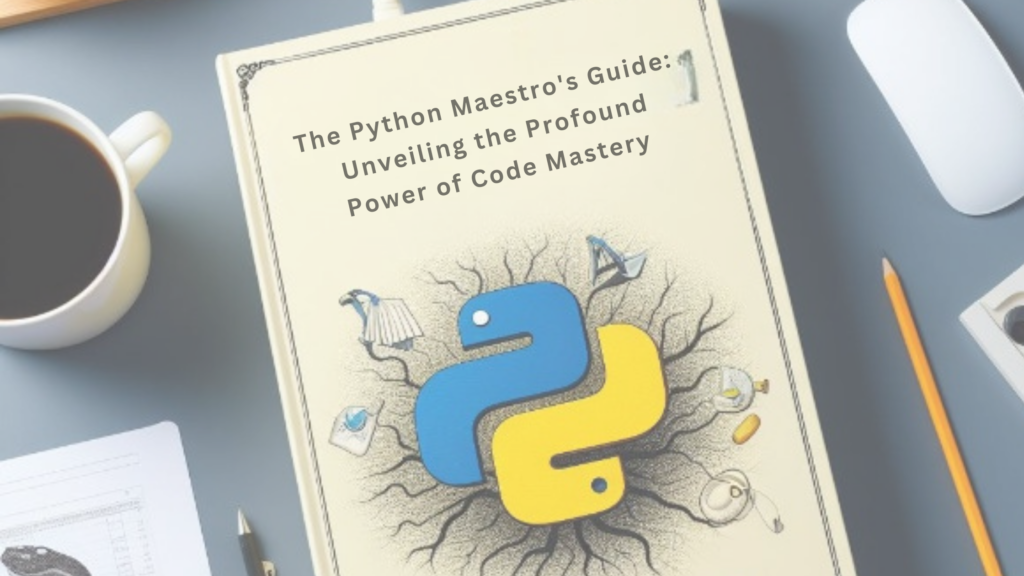In the vast realm of programming, mastering Python is akin to unlocking a treasure trove of possibilities. The journey from a novice to a Python maestro is a fascinating one, filled with challenges, triumphs, and the joy of creating solutions with lines of code. In this guide, we will delve into the profound power of code mastery, exploring the key principles, practices, and mindset that elevate a Python developer to the status of a true maestro.
1. The Art of Learning: Embracing the Pythonic Way
Becoming a Python maestro begins with embracing the Pythonic way of thinking. Python’s readability and simplicity make it an ideal language for beginners, but true mastery requires understanding its core philosophy. Embrace the zen of Python and let its guiding principles, encapsulated in the famous PEP 20, be your beacon. Readability counts, simplicity matters, and beautiful code is more than a luxury—it’s a necessity.
2. Building a Strong Foundation: Mastering the Basics
The journey to mastery starts with a solid foundation. Invest time in understanding the fundamentals of Python: variables, data types, loops, and conditionals. A maestro’s command over the basics is akin to a musician’s mastery of scales—they are the building blocks of your programming symphony.
3. The Elegance of Pythonic Code: Writing with Style
Python is renowned for its elegant and readable syntax. To ascend to the ranks of a Python maestro, pay attention to code aesthetics. Strive for clarity, use meaningful variable names, and follow the PEP 8 style guide. Remember, writing code is not just about making the computer understand; it’s about making your fellow developers comprehend your logic effortlessly.
4. Decoding the Data Structures: A Maestro’s Toolkit
Understanding data structures is like having a diverse set of tools in your coding toolkit. From lists and dictionaries to sets and tuples, each data structure has its strengths. A Python maestro knows when to deploy the right tool for the job, optimizing code efficiency and readability.
5. The Art of Debugging: Transforming Challenges into Triumphs
Mastery in Python goes hand in hand with the ability to debug effectively. Every error message is a puzzle waiting to be solved. Learn to read tracebacks, use print statements judiciously, and embrace debugging tools like pdb. A maestro doesn’t fear bugs; they see them as opportunities to refine their skills.
6. Crafting Functions: Modular Magic
Functions are the building blocks of a Python maestro’s code. Master the art of crafting modular, reusable functions that adhere to the DRY (Don’t Repeat Yourself) principle. Your code should be a composition of elegant, self-contained functions that seamlessly come together to create a harmonious whole.
7. Diving into Object-Oriented Programming (OOP): A Maestro’s Paradigm
Object-oriented programming is the backbone of many Python applications. Delve into classes, objects, and inheritance to take your coding prowess to the next level. A Python maestro understands the power of encapsulation, inheritance, and polymorphism to create scalable and maintainable code.
8. The World of Libraries and Frameworks: Power Tools for a Maestro
Python’s extensive ecosystem of libraries and frameworks is a playground for a maestro. Explore popular libraries like NumPy, pandas, and requests. Familiarize yourself with frameworks like Flask or Django for web development. Knowing when and how to leverage these tools is a hallmark of a Python maestro.
9. Code Optimization: Mastering Efficiency
A true maestro goes beyond functional code; they optimize for efficiency. Learn about time and space complexity, profiling, and algorithmic efficiency. A Python maestro doesn’t settle for just making code work; they make it work elegantly and swiftly.
10. Embracing Continuous Learning: A Maestro’s Mindset
The journey to Python mastery is an ongoing process. Stay curious, keep exploring new libraries and technologies, participate in coding challenges, and contribute to open-source projects. A Python maestro understands that the coding landscape is ever-evolving, and continuous learning is the key to staying at the forefront.
In conclusion, the path to becoming a Python maestro is a transformative journey marked by a commitment to learning, an appreciation for elegant code, and a willingness to embrace challenges. By mastering the art of Pythonic thinking, building a strong foundation, and adopting a continuous learning mindset, you too can unlock the profound power of code mastery. Happy coding!

